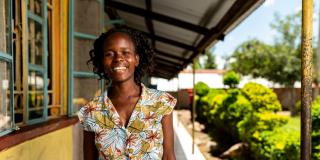
In Iran, the death of Mahsa Amini while in police custody for allegedly violating Iran's mandatory hijab law, sparked protest across the globe. In Afghanistan, the Taliban regime severely restricted women’s education, preventing girls from attending formal secondary school and university. While in many other countries, governments have stripped back women’s right to have an abortion.
While much progress has been made, the fight continues. The persistence of protests and women's movements shows that we’re not backing down! In this blog, we celebrate some key achievements of women around the world and understand how much further we have to go...
Women take the lead on the football field
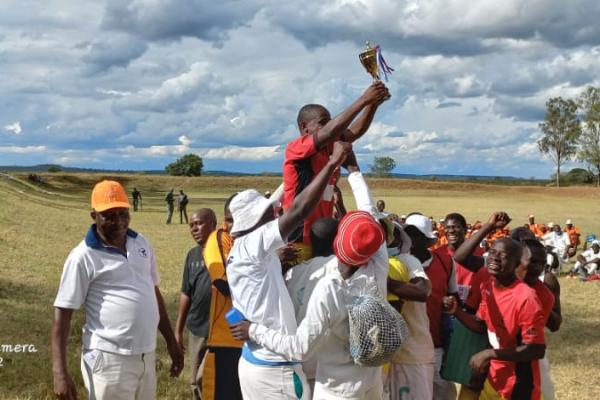
The UEFA Women's EURO 2022 smashed spectator records for female football. A crowd of 87,192 supporters witnessed England's final triumph over Germany, which doubled the previous record for a crowd watching the Women’s EURO.
2022 was also the most watched Women’s EURO ever, with a projected global live viewership of 365m, across 195 territories, smashing the 2017 viewership of 50m. The event inspired women and girls to strap on their boots and prove that they can kick out the competition just as well as the men.
VSO has also been making a name for itself on the football pitch. In partnership with Tackle, we have utilised the power of football to teach prison inmates about sexual and reproductive health rights in Malawi, Zambia, and Zimbabwe.
Our evaluation report of the project shows that as a result of their participation, high proportions of inmates exhibited positive attitudes with regards to preventing violence against women. We also found that 91% and 94% disagreed with the notions that women should (a) tolerate violence and (b) be assaulted. A high proportion of inmates further agreed that condom use should be a joint decision for men and women (95.2%).
Ensuring education for all in Kenya
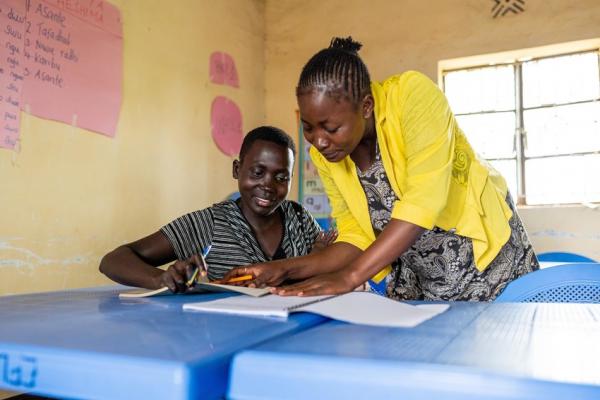
In Kenya, a landmark intersex rights law granted equal rights and recognition to intersex people. This was the first African country that granted this as a universal right! Now, intersex people are recognized as Kenya’s third gender with an ‘I’ gender marker in response to the Children Act 2022.
The new law requires intersex people to be treated with dignity and have equal access to basic services like medical treatment and education, in addition to social protection services. It also protects intersex children from so-called sex normalization surgeries, that can leave children traumatized.
Regardless of gender or ability, VSO believes that all children have the right to an education. This is why our education projects develop and strengthen inclusive education systems that leave no child behind. We are working to keep children in school and challenge harmful cultural norms that can prevent young people from completing their education.
Shattering the glass ceiling in Pakistan
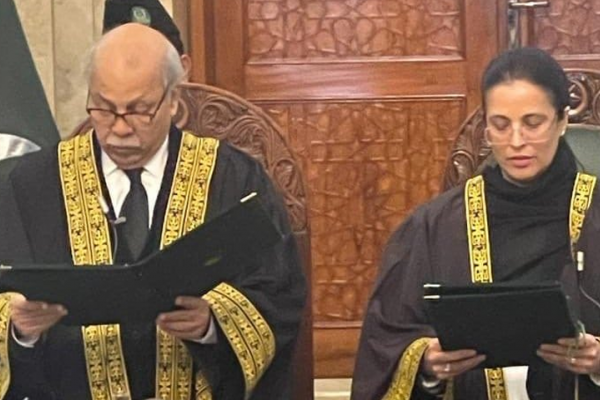
2022 marked a significant year for women in Pakistan, with 55-year-old Mrs. Justice Ayesha Malik being appointed the first female Pakistani judge in the Supreme Court in the 75 years since the country's independence.
"An important and defining moment in our country as a brilliant lawyer and decorated judge has become Pakistan's first female Supreme Court judge," tweeted Maleeka Bokhari, former Parliamentary Secretary for Law and Justice. "To shattering glass ceilings," she added.
Our education projects in Pakistan are ensuring that all girls are allowed to prosper and shatter class ceilings of their own! In 2022, devastating floods took place in Pakistan, costing over $14.9 billion in damages. Since then VSO has established six weather-resistant, Transitional Learning Centres to ensure children can continue to learn in a safe enviornment.
The education sector has been severely impacted by the recent flood emergency. Not only due to destruction and damages to schools but also disruption of schooling and the psychosocial stress experienced by children, adolescents, and teachers. Data from provincial Education Departments and VSO assessments show that at least 17,566 schools have been damaged/destroyed due to the emergency. VSO has supported the education departments to provide safe learning environments for all children, with a focus girls and children with disabilities who are most at risk.
Fighting the fight for disabled rights in Rwanda
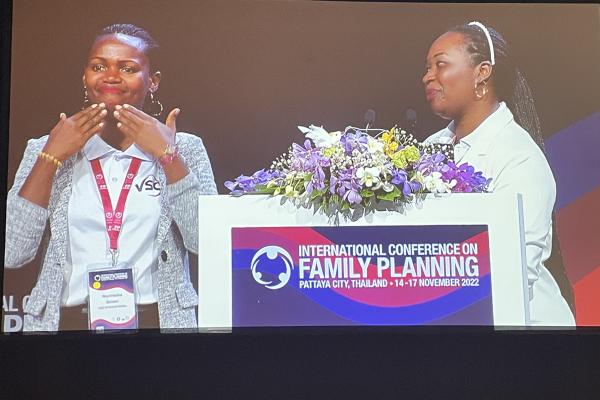
Did you know that Rwanda is ranked number one in the world for gender equality? The proportion of government officials who are women stands at 61.25% today, way above the current global average of 26.4%.
However, in late 2022 activists from the National Union of Disability Organisations of Rwanda (NUDOR) called for inclusivity of people living with disability, especially women, in fighting against GBV. Women with disabilities are at two to four times higher risk of intimate partner violence than women without disabilities. People with disabilities may experience difficulty in reporting cases of GBV for example if they have mobility issues, a speech impediment or are Deaf.
The Imbere Heza or ‘Futures Bright’ project in Rwanda is ensuring deaf youth in Rwanda have equal access to health services and can access the support they need. Inspirational women, like VSO Award winner Brown Niyonsaba, are training community health workers in sign language and supporting Deaf youth to understand their own sexual and reproductive health rights.
“I grew up an ambitious person, knowing that everything is possible as long as you work toward a vision” says Brown. She was awarded the EXCELL award at the International Conference of Family Planning last year, recognising her contribution to the field.
Engaging men to benefit us all
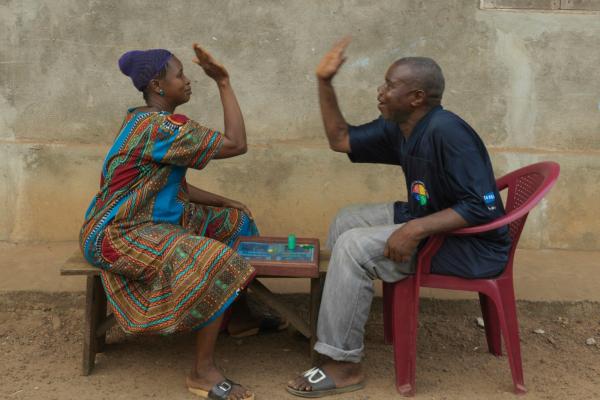
Despite gaining global attention during the COVID-19 pandemic and international lockdowns, the shadow pandemic of GBV continues.
New research from the UN shows that as many as 48,800 women and girls worldwide were killed by intimate partners or family members in 2022 alone. Of all the women and girls intentionally killed last year, some 56% were killed by intimate partners or other family members. More than five women or girls were killed every hour by someone in their own family, that means a woman is killed every 11 minutes!
Challenging this cannot fall to women alone. We need male allies, to understand the everyday issues and threats that women are facing, starting in their own homes. That’s why VSO’s male engagement programmes in Sierra Leone, Nepal and Zimbabwe are helping to break down these boundaries by recruiting men to advocate within their communities for women’s rights.
These centre around our male advocates and peer health educators, who are members of the community and have volunteered to learn about and spread awareness on a range of issues including, sexual violence, GBV, rape, female genital mutilation, sexual and reproductive health, child marriage, and child abuse.
So much progress has been made in the fight for gender equality, but people of all genders must keep working to ensure that we continue to move forward. As the great Malala Yousafzai said, “We cannot all succeed when half of us are held back.”
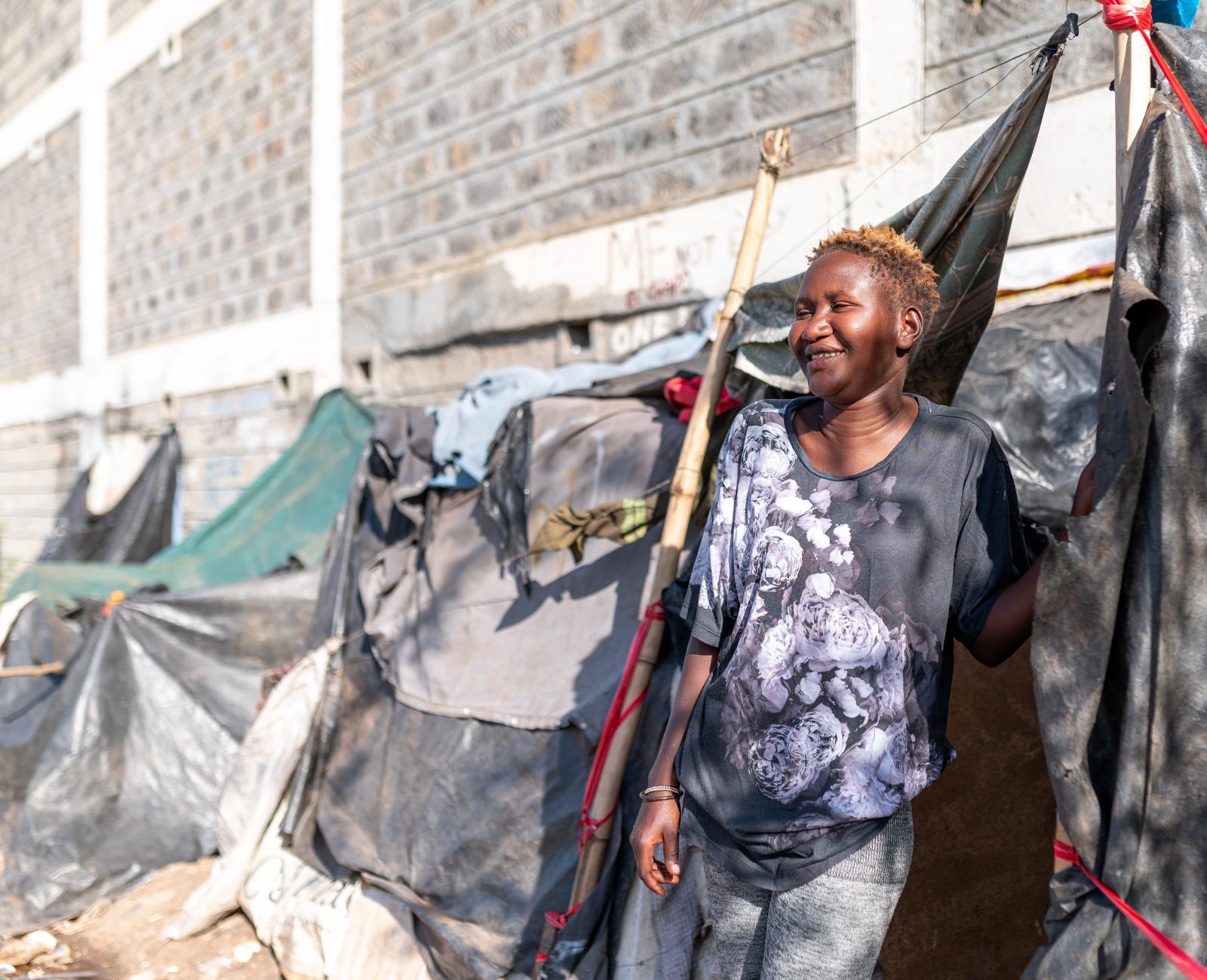
Support us with a donation
Read more
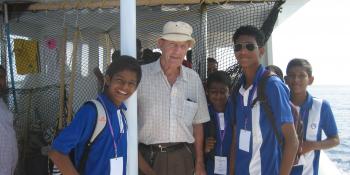
Transforming lives through education: Geoffrey’s VSO legacy
With a deep belief in the transformative power of education, Geoffrey from Norfolk, UK, has devoted his life both in the UK and abroad to making education more accessible for all.
